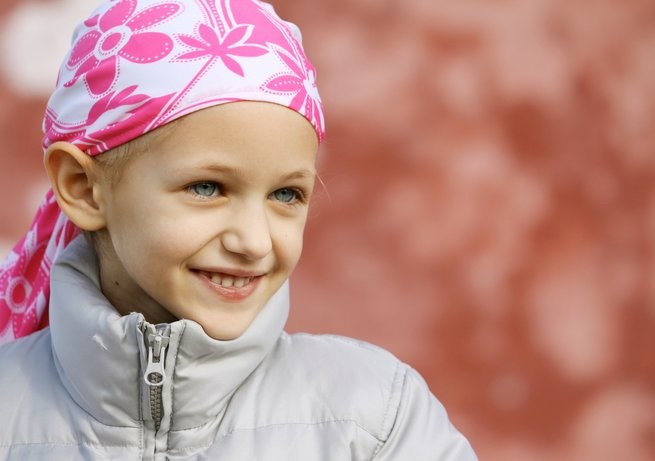
New Cancer Drug Effective in 93% of Pediatric Patients
by UT Southwestern Medical Center
A first-of-its-kind drug targeting a fused gene found in many types of cancer was effective in 93 percent of pediatric patients tested, researchers at UT Southwestern's Simmons Cancer Center announced.
Most cancer drugs are targeted to specific organs or locations in the body. Larotrectinib is the first cancer drug to receive FDA breakthrough therapy designation for patients with a specific fusion of two genes in the cancer cell, no matter what cancer type. The research appears in The Lancet Oncology.
"In some cancers, a part of the TRK gene has become attached to another gene, which is called a fusion. When this occurs, it leads to the TRK gene being turned on when it's not supposed to be and that causes the cells to grow uncontrollably. What's unique about the drug is it is very selective; it only blocks TRK receptors," said lead author Dr. Ted Laetsch, Assistant Professor of Pediatrics and with the Harold C. Simmons Comprehensive Cancer Center.
More information
Larotrectinib, targets TRK fusions, which can occur in many types of cancer. While the TRK fusions occur in only a small percentage of common adult cancers, they occur frequently in some rare pediatric cancers, such as infantile fibrosarcoma, cellular congenital mesoblastic nephroma, and papillary thyroid cancer, said Dr. Laetsch, who leads the Experimental Therapeutics Program (ETP) in the Pauline Allen Gill Center for Cancer and Blood Disorders at Children's Health in Dallas.
"Every patient with a TRK fusion-positive solid tumor treated on this study had their tumor shrink. The nearly universal response rate seen with larotrectinib is unprecedented," Dr. Laetsch said.
Among them was 13-year-old Briana Ayala of El Paso, who aspires to a career in fashion design. In 2016, Briana was found to have a rare tumor in her abdomen wrapped around her aorta, the largest artery in the body.
Surgeons in her hometown said it would be too dangerous to operate, so her family brought Briana to Children's Health in Dallas, where UT Southwestern Professor of Surgery Dr. Stephen Megison had to remove portions of her aorta while removing most of the tumor.
But the cancer started to grow again and no further treatments were available.
To read more, click here.
Construction & Estimating Professional
5yYour grandfather may be here in fall.
Digital Marketing Executive | Biopesticides Market
5yOrian Research published a New Market Research Report On “Global Cancer Drug Therapy Industry 2018 Market Research Report. This report gives Cancer Drug Therapy market size,Innovation, trends, share, growth, cost structure and drivers analysis. Get Sample Copy @ http://bit.ly/2wud1rT
Student at lhs
5yhop you can fight way the cancer
Project Engineer/Project Manager at MMR Group
5yThe Gerson Therapy, you’re welcome.
Administrative Assistant in the School of Computing at Weber State University
5yWe are sheep. We believe everything the government tells us. Stand up and fight.